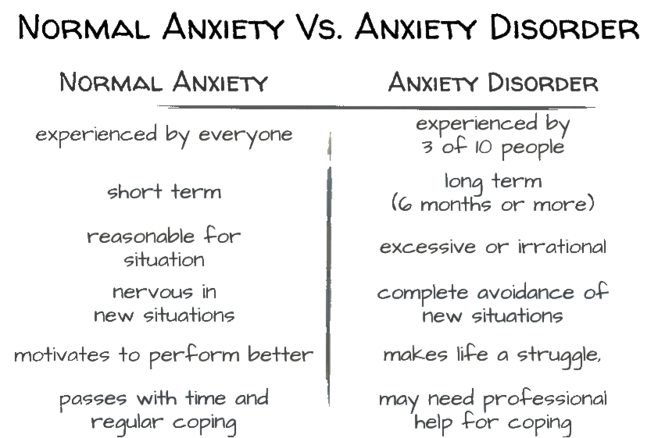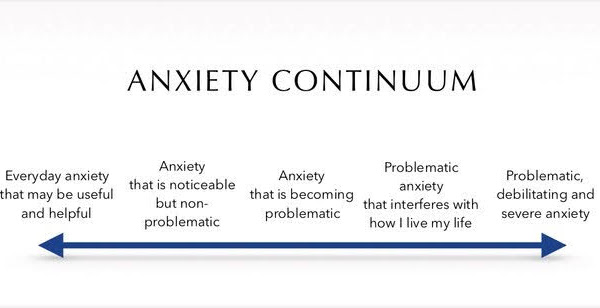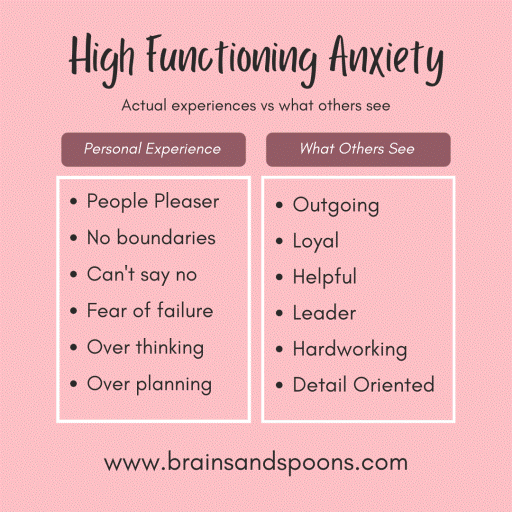All About Anxiety: Coping Mechanisms and Support

Feeling anxious is uncomfortable but normal
Your heart is pounding so fast it feels like it’s coming out of your chest. You’re short of breath. You have sweaty palms and feel dizzy.
We’ve all felt like this – anxious. While anxiety feels uncomfortable and frustrating, it is also a natural response to stress.
You are supposed to have anxiety. That’s right – anxiety tells you that something is important (like delivering a big presentation) or that there’s a danger that you must avoid (feeling nervous when you see another person approaching you on a dark street).
However, if anxiety impacts your daily life - even if you seem to get through the day - it is something to pay attention to.

The Anxiety Continuum
The anxiety continuum is a great tool to help us assess when to seek support and help.

We all feel anxious at some point in our lives - before we take an exam, or go live on Facebook for the first time, or present a proposal to a new client. Feeling nervous and anxious in these kinds of situations is normal.
When anxiety reaches the middle point on the continuum, where it becomes problematic, it is time to check-in with a counsellor or mental health professional. If left to thrive, anxiety eventually takes over and dominates every aspect of our lives. While it is estimated that severe anxiety impacts 1 in 10 Canadians, anxiety disorders are treatable and manageable.
High-functioning anxiety
‘High-functioning anxiety’ is a term often used to describe people who have frequent anxiety but function well, or at least appear to function well to other people. It is important to note that it is not a recognized mental health diagnosis.
On the outside, you might appear outgoing, helpful, high-achieving, organized, and detail-oriented. That’s because your anxiety is making you arrive early for meetings and appointments, plan ahead for all possibilities, and try to please everyone. Anxiety doesn’t paralyze you but instead pushes you forward to achieve more. Most people probably have no idea that you are experiencing frequent anxiety.
You can read more about high-functioning anxiety in this blog post.

Coping mechanisms and supports
You can try coping strategies such as breathing, physical exercise, journaling, or listening to music.
Learn more about anxiety and coping mechanisms in these blog posts:
Transforming anxiety into peace
You’re Supposed to Feel Anxious - But There Are Ways to Cope
Related services and resources:
Anxiety Therapy Group
In the anxiety therapy group, you can talk about your feelings and experiences with anxiety in a healing group setting. You will engage in therapeutic activities and monitor therapeutic change.
Mental Health Counselling
You can also talk to a mental health therapist in a private setting.
